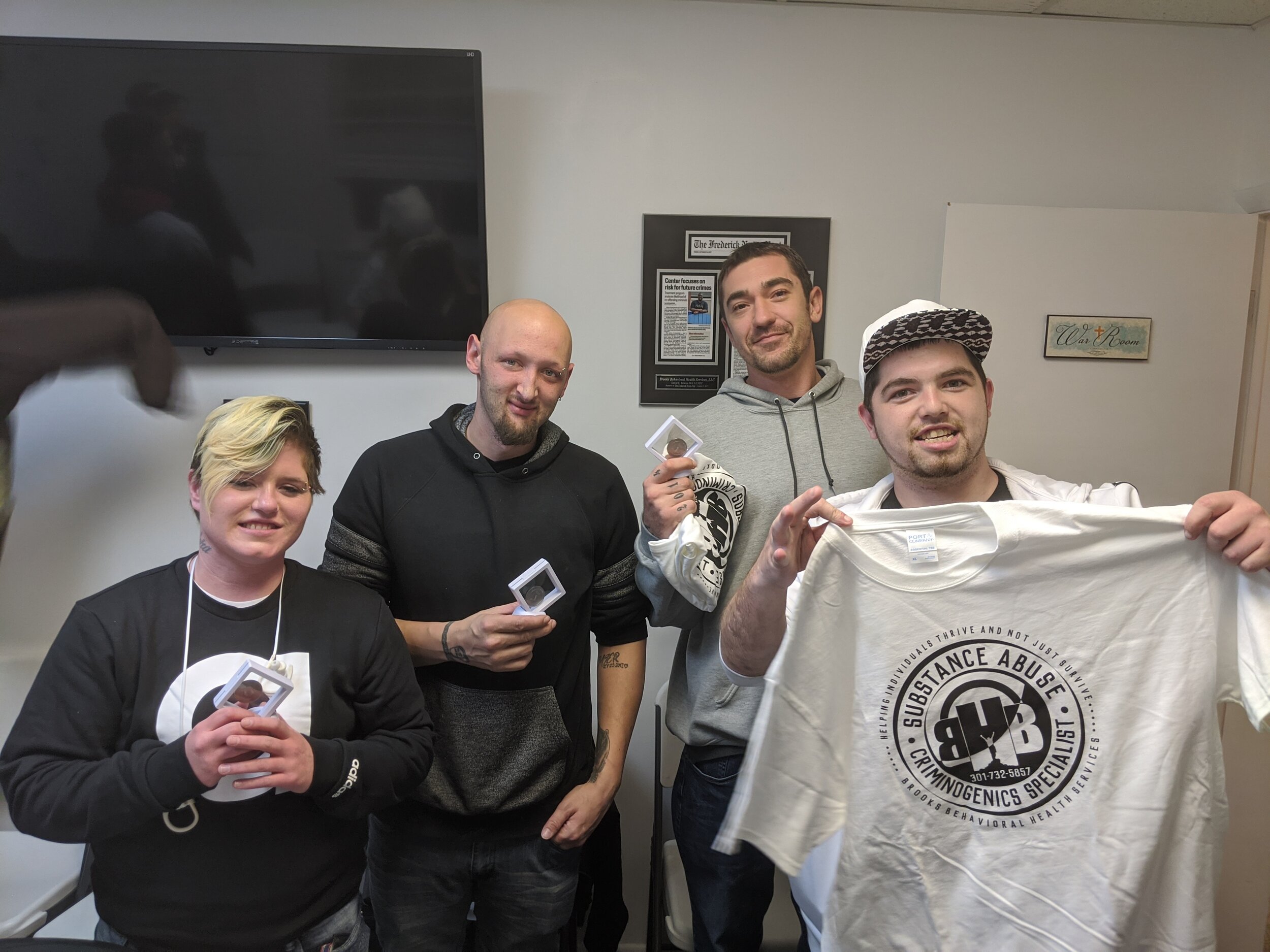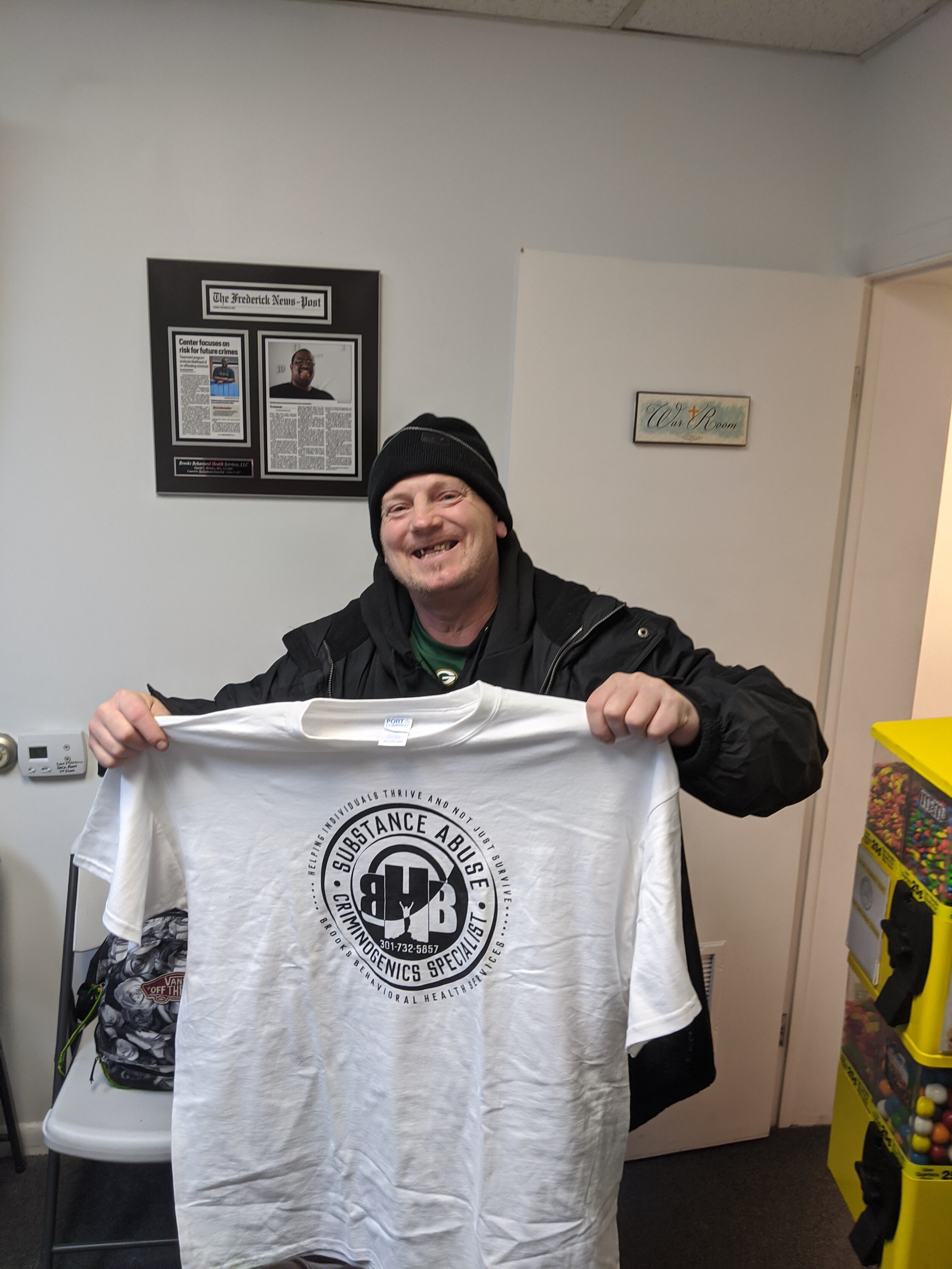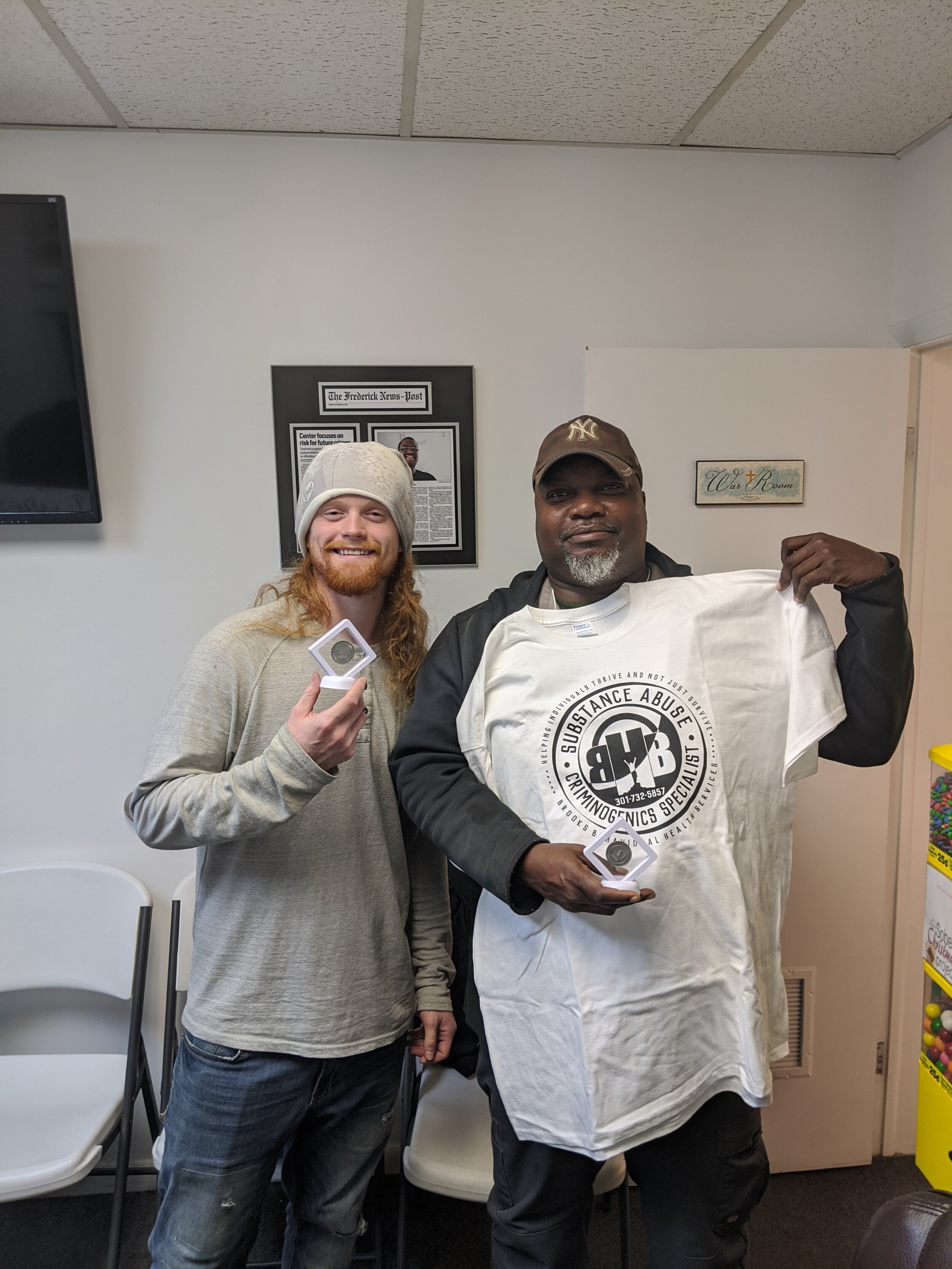Criminogenic Grants
Frederick County Drug Court Criminogenics Graduates
Reducing Recidivism while Improving Public Safety
Frederick County Adult Drug Court and Brooks Behavioral Health Services are collaborating to implement the first Criminogenic Program offered in Maryland to challenge maladaptive behaviors and thinking errors commonly found in the population of Problem-Solving Court (PSC) participants. Due to all of the PSC participants having a Criminogenic Needs and Risk Factor rated moderate or high, BBHS created a program to educate PSC participants about criminogenic risks and needs as a preventive tool. Therefore, enhancing the participant’s ability to develop trust and honesty, while decreasing the participant's opposition to functioning within the Law of Frederick County.
By BBHS providing this service to a problem-solving court participant, we are helping the participants learn new tools and techniques in managing unhealthy, maladaptive, anti-social behaviors and criminal thoughts. We are not focusing on the behaviors of substance using. Our program addresses lifestyle behaviors of criminality (any illegal behavior). Our groups restructure the thoughts to help participants live a new and productive lifestyle.
Providing a group addressing anti-social beliefs to the participants of Frederick County Drug Court, the judicial system now has objective not subjective proof that the participants understands that dishonesty, opposition, disloyal, and inability to trust are thinking errors that increases sanction and termination rates. When a participant completes the program, all members of the drug court staff and the participant are clear about unhealthy and healthy behaviors and acceptable verse unacceptable thinking patterns. If a participant relapses in criminal thinking, they have the ability to be sanction therapeutically through our program.
Is Criminality Treatable?
Behavioral programs have several attributes. First, they are centered on the present circumstances and risk factors that are responsible for the offenders behavior. For example, focusing on a past event, such as abandonment or grief counseling might be therapeutic and helpful in increasing one's understanding, but it will unlikely do much to reduce the risk of re-offending. On the other hand, changing with whom an offender associates is much more likely to assist him or her in staying out of trouble. This is not to say that past trauma cannot be a barrier to addressing anti-social behavior, but it is the current behavior that is the target for change, not the past.
Relapse Prevention Support Program
Frederick County Workforce Services (FCWS) delivers employment and training services to job seekers and businesses in accordance with the Workforce Innovation and Opportunity Act (WIOA). In January, 2019, Workforce Services was awarded additional funding under the National Health Emergency Grant to assist communities and individuals who have been directly or indirectly affected by the opioid crisis.
Brooks Behavioral Health Services (BBHS) provides biopsychosocial assessments, groups, substance screening, and individual services for relapse prevention support and workplace readiness training for participants enrolled in the Fredrick County Workforce Grant.
BBHS created a criminogenic need’s focused curriculum addressing the following areas:
Behavioral and mental health supports and resources while job searching and throughout employment
Healthy stress management and self‐care.
Communication and handling conflict and difficult situations at work
Managing employment and recovery
Identifying and managing triggers
Creating a Support System
Reducing Criminogenics Needs and Risk Factors



